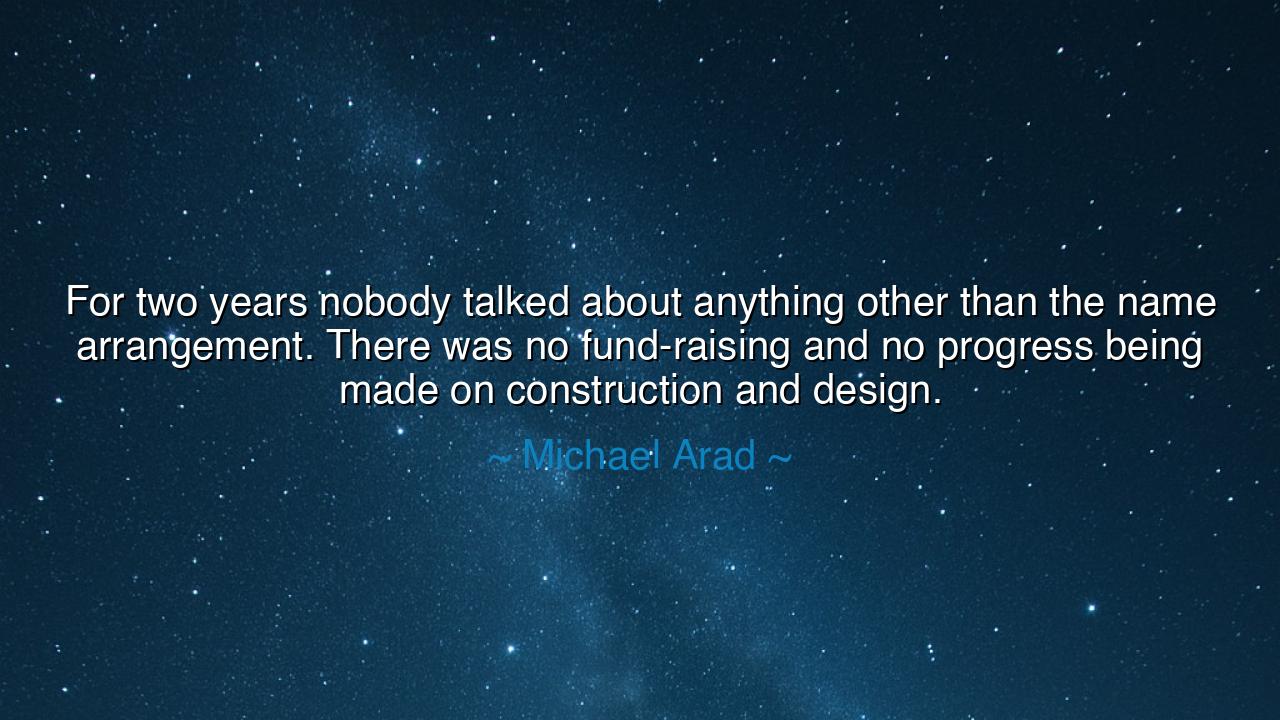
For two years nobody talked about anything other than the name
For two years nobody talked about anything other than the name arrangement. There was no fund-raising and no progress being made on construction and design.






In the aftermath of unimaginable loss, when a nation’s heart still trembled with grief, Michael Arad, the architect of the 9/11 Memorial, spoke words that reveal not merely frustration, but a deep reflection on the human condition: “For two years nobody talked about anything other than the name arrangement. There was no fund-raising and no progress being made on construction and design.” His lament is not only about architecture or bureaucracy — it is about the way grief, memory, and division can paralyze the forward movement of creation. These words, born from the ashes of tragedy, are a lesson in the struggle between emotion and action, between the desire to honor the past and the necessity to build the future.
When Arad speaks of the “name arrangement,” he is describing a debate over how to list the nearly three thousand souls who perished on September 11, 2001. But symbolically, his words reach far deeper. They speak to the human impulse to dwell upon detail when the heart cannot yet bear to heal. For two years, the builders of remembrance stood still — trapped not by indifference, but by mourning. The work of hands could not begin because the work of hearts was unfinished. This is a mirror of life itself: how often we linger upon one small sorrow, circling it endlessly, while the grand design of our becoming waits, unfinished, beyond our tears.
In this, the quote reminds us that even noble intentions may bind us when not balanced by vision. To honor the fallen is sacred, but to let reverence become stagnation is to let death triumph twice. The memorial that Arad sought to build was not merely a space of stone and water — it was to be a symbol of resilience, a bridge between grief and renewal. Yet the people, wounded and afraid to move on, became ensnared by debate. What should have been a conversation about rebuilding turned into a quarrel about naming. And so, the years slipped away, heavy with silence and sorrow.
This struggle is not new. In the ancient city of Athens, after the devastation of war, the citizens once quarreled over how to commemorate their dead. The orator Pericles rose before the people and urged them to build not statues alone, but a civilization worthy of those who had perished. “Our greatest memorial,” he said, “is not in stone, but in the living.” He understood, as Arad did, that grief must eventually give way to creation — that mourning, though sacred, must not become the tomb of progress. The Athenians, hearing this, turned from lamentation toward rebuilding their city, and in doing so, gave birth to one of the greatest ages of art and philosophy the world has known.
So too must we learn that progress and remembrance are not enemies. The heart can honor the past even as the hands shape the future. Arad’s frustration teaches that when emotion overwhelms purpose, even the most noble of tasks can falter. The committee of remembrance, noble in intention, became a mirror of humanity’s endless struggle to find harmony between compassion and action. The dream of the memorial was delayed not by neglect, but by too much feeling left unbalanced by clarity.
Therefore, let the seeker of wisdom understand: there is a time to weep, and a time to build. To stay too long in grief is to forget that even sorrow has a season. The names of the fallen must indeed be spoken — but if they are to live forever, they must live through what we create in their honor. The waterfalls of the memorial, which now descend endlessly into twin voids, were born not from argument, but from the moment humanity remembered to move forward — to transform pain into purpose, and silence into song.
And so, my child of the future, remember this truth: when your heart is burdened by loss, do not let your mourning chain your hands. Build, even if your spirit trembles. Create, even when your heart is raw. For remembrance is not meant to freeze time — it is meant to transfigure it. Michael Arad’s words, though spoken in frustration, echo as wisdom: that we must not let the weight of sorrow prevent the birth of beauty. For only when grief finds its shape in creation can the living truly honor the dead, and only then can we, too, rise from the ruins to begin again.






AAdministratorAdministrator
Welcome, honored guests. Please leave a comment, we will respond soon